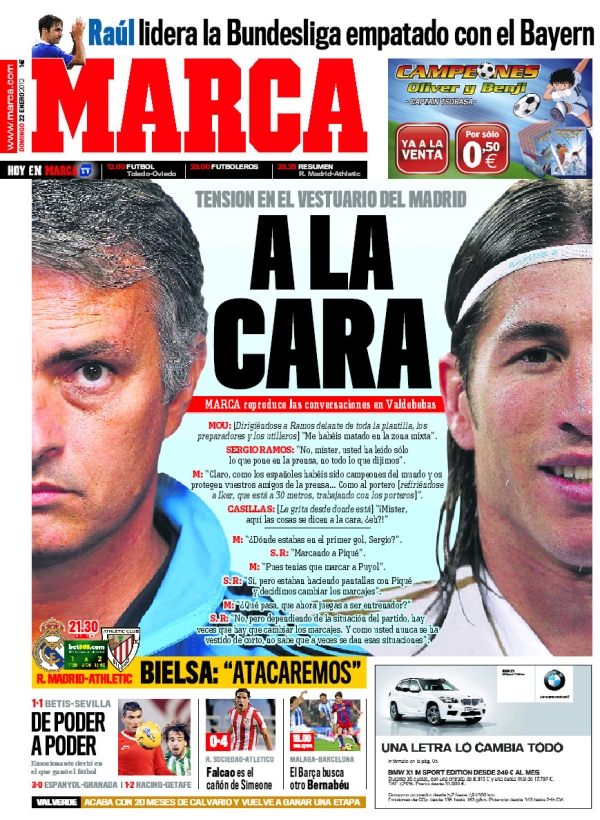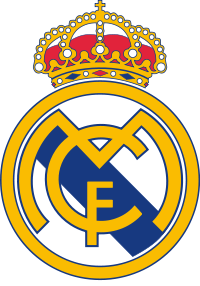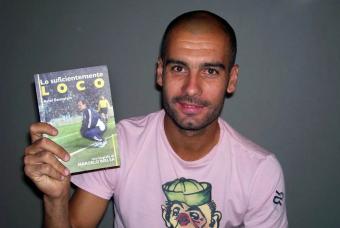A couple of big-name matchups in 2nd legs of domestic cup competitions coming up later today: (1) Carling Cup semifinal - Manchester City vs Liverpool - 8:45pm CET / 2:45pmET / 7:45pm GMT (USA TV: FSC); and (2) Copa dey Rey quarterfinal - Barcelona vs Real Madrid - 10pm CET / 4pm ET / 9pm GMT (USA TV: ESPN Deportes, GolTV, ESPN3.com)
main
CommentarySpainVideo
Further Thoughts on Copa del Rey Clásico
We watched Wednesday’s Clásico in its entirety with spirited company at WoodworkBK. We had the sense then that Barcelona slowly took control after the early goal by Cristiano Ronaldo, and that Pepe was terrible. Watch this extended highlight clip, which should reinforce the conclusions that (a) Barcelona completely dominated after about the 25′ mark, and (b) Pepe was a complete embarrassment–and not only for the already-infamous Messi hand stamp:
Real Madrid v Barcelona by vynylr
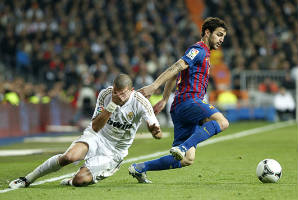
Pepe actually hurt Madrid with his play, and his theatrics yesterday matched those of Busquets last spring. He got that an yellow (~16′) for a gratuitous and cheap foul on Busquets deep in Barcelona’s half, and should have got a 2nd yellow for either his playacting at 64′ after Cesc outplayed him for the ball (listen to the Sky Sports commentators), and then of course the handstamp at 67′. So really Madrid should’ve been a man down for the last 25mins. Mourinho finally had to sub him off a little after that.
Even more significantly, he was completely rooted to the ground while Puyol streaked past him to score Barça’s first goal on that diving header at the beginning of the 2nd half.
It seems like he lost it mentally b/c he was getting outplayed all over the field–he’s just not that good on the ball, and not quick enough to contain Barcelona in midfield..
It will be interesting to see if Mourinho sticks with him after this.
Also: it looks like Carvalho was a fraction of a second pulling forward and kept Abidal onside for Barça’s 2nd goal. And then the Portuguese central defender had two really bad tackles in the final minutes of the match: one on Messi that got him a yellow, and a 2nd on Adriano in extra time that prob should’ve seen him ejected.
CommentarySpain
Los Clásicos As Amadeus Redux
After watching the second half of yesterday’s Clasico, I’m beginning to see Mourinho as Salieri to Guardiola’s Mozart. When a team of Madrid’s caliber gets schooled and forced into errant passes and frantic individual dribbles on offense and desperate tackles on defense, huffing shadow-chasing and hapless outreached hands pleading for offside calls that won’t come, the opposition must be touched by the divine; the divine stringing of passes, la pelota always kept just a fleeting inch away from Madrid’s lunging cleats, and importantly, the divine total defense, which at one point saw Özil attempting to dribble into the box only to be surrounded by seven (7!!) claret and blue shirts.
That is the intensity of Barca’s defensive strategy, immediate ganging up on the person with the ball, so that even if an opponent manages to dribble past one, or two, they never have the time to look for the pass because there will immediately be the third, and then its back to eluding the first again. Barca’s players attack at a leisurely tiki-taka pace, and save their bursts of speed for reclaiming the ball. This zealous, jealous demand for the return of the ball is as much part of the secret of their possession as it is their immaculate passing.
I want to see a team really try to take Barca on with their own style, pass for pass, tik for tak, rather than Mourinho’s vainglorious attempt to find an alternative way, trying fire against water, then air and iron, his mad doomed search for an antidote when perhaps what he needs is a vaccine?
[Editor’s note: If you missed the match, read Sid Lowe’s match report or his subsequent blog post (“Real Madrid damage image, reputation and status in defeat to Barcelona“). Or better yet, watch the video highlights below (at least before they’re taken down due to copyright infringment) or stream the full match from ESPN3.com’s archives.]
PreviewSpain
A Decaffeinated Clásico Today?
Yet another Clásico–the two Spanish superpowers meet again today, in what will be their 8th battle in the past 9 months (see table below). Real Madrid hosts Barcelona at the majestic Estadio Santiago Bernabéu, for the first leg of their Copa del Rey quarterfinal tie. Kickoff is at a very Spanish 10pm in Madrid, which corresponds to 4pmET/1pmPT here in the US (where ESPN Deportes and GolTV will be televising the match, and ESPN3.com will be streaming it live; see livesoccertv.com for additional TV listings).
But the “yet” is telling–after all those intensely anticipated and intensely played matches over the past year, even we have Clásico fatigue. It does seem like the buildup to this one is muted compared to the previous matches, perhaps because it’s a Copa del Rey quarterfinal. The domestic cup competition is certainly a distant third in importance to these teams, far behind the Champions League and La Liga titles. It’s one thing if these two were meeting in a one-off final for the Copa, as they did last April, in what turned out to be a thrilling match (see our detailed breakdown of the film from that match here and here). But for them to have to meet twice more in the quarterfinals just seems a bit..unseemly.
That Copa del Rey victory was Madrid’s sole sucess in recent memory in this rivalry. Consider the run of results over the past few years, stretching back to the beginning of Pep Guardiola’s reign, which started in the summer of 2008, when Barcelona let Frank Rijkaard go and promoted Josep up from managing the B team (annotated with links to previous CultFootball posts about certain of the matches):
| 13 December 2008 | Barcelona | 2 – 0 | Real Madrid | La Liga |
| 2 May 2009 | Real Madrid | 2 – 6 | Barcelona | La Liga |
| 29 November 2010 | Barcelona | 5 – 0 | Real Madrid | La Liga |
| 16 April 2011 | Real Madrid | 1 – 1 | Barcelona | La Liga |
| 20 April 2011 | Barcelona | 0 – 1 | Real Madrid | Copa del Rey final |
| 27 April 2011 | Real Madrid | 0 – 2 | Barcelona | Champions League (semifinal, 1st leg) |
| 3 May 2011 | Barcelona | 1-1 | Real Madrid | Champions League (semifinal, 2nd leg) |
| 14 August 2011 | Real Madrid | 2-2 | Barcelona | Spanish Super Cup (1st leg) |
| 21 August 2011 | Barcelona | 3-2 | Real Madrid | Spanish Super Cup (2nd leg) |
| 10 December 2011 | Real Madrid | 1-3 | Barcelona | La Liga |
Confirming that Clásico fatigue has set in, on this past Monday’s Guardian Football Weekly podcast Sid Lowe called in from Spain to the crew in London, as he usually does to commentate on all matter relating to Spanish football. Listen from the 29′ minute mark–he first reports on Madrid and Barcelon’s recent less-than-stellar recent form. Madrid came from behind last weekend to win 2-1 against lowly Mallorca, via goals from Higuain and Callejón (more on Callejón below). Meanwhile Barcelona were down 2-0 at home against Real Betis before ultimately winning 4-2 (and that after they’d points earlier this month in a yet another draw against local rivals Espanyol in the Catalan derby), and slips in this interesting analysis: “Betis were great..Betis really went for Barcelona. I think they showed that if you put pressure on Barcelona high up, and you get at those players who quite aren’t so good at bringing the ball out and maintaining possession, in particular because Pique wasn’t playing, then you can actually cause Barcelona some problems.” We’re curious who “those players” refers to–Mascherano? In any case, Pique is expected to be back in the traditional center back pair with Puyol, so it’s a moot point for today’s match–but something to keep in mind.
He’s then asked about today’s Clásico, and replies that even in Spain there’s a bit of weariness with respect to this match: “there is a very slight sense of–I don’t if I’d call it boredom, I don’t think it’s quite boredom–but a sort of tiredness of the Clásico.” Then Sid says–just as his dog starts barking, as it curiously almost always does at some point during his calls from Spain–that Casillas was quoted as saying the rivalry has become “decaffeinated when the teams play each other too often.”

Well, today’s decaffeinated match, most eyes will of course be on Messi and Ronaldo. As well they should be. But a soccer team is really a complex system. Certainly there are moments of individual brilliance, especially, as we’ve seen, from players like Messi and Ronaldo. But those moments have to happen within the context of the team. So watch Messi–but watch his movement off the ball as well as on it, and watch his combinations with Xavi and Iniesta especially. Further deep, watch Busquest–probably the least-liked Barca player, but an essential one. He’ll drop deep at times, into the center of defense with Pique and Puyol (especially when the wingback, Dani Alves and likely Adriano, get forward for width in attack); he’ll be called on to intercept and tackle to break up the opposition’s attack; and he’ll initiate the Barcelona moves forward, combining as well with Xavi and Iniesta in the center.
On the opposite side, it sounds like Sami Khedira (defensive/holding midfielder) and Angel di Maria (attacking winger) are out for Madrid due to injury. They are key players for Madrid, but the Galacticos have talent in reserve. We’ll likely see Ozil in the center ahead of Lass Diarra and enforcer Pepe (they’ll be tasked with trailing and tackling Messi), with Ronaldo on one wing and youngster José Callejón on the other. Callejón slipped into the starting lineup in Madrid’s latter, largely meaningless Champions League group stage matches–and started scoring at such a clip that he’s continued to start. He’s 24 years old, came up through the Madrid youth system, but then went to Catalonia for a 3-year stint with Espanayol, before returning to the fold this summer.
CommentaryPreviewSpain
What to Watch This Weekend: El Clasico!
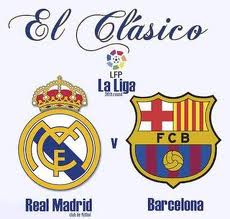 Another El Clasico is upon us–Real Madrid hosts archrivals FC Barcelona at the majestic Santiago Bernabeu for a Saturday night La Liga match (kickoff is at 10pmCET/9pmGMT/4pmEST).
Another El Clasico is upon us–Real Madrid hosts archrivals FC Barcelona at the majestic Santiago Bernabeu for a Saturday night La Liga match (kickoff is at 10pmCET/9pmGMT/4pmEST).
This will be, remarkably, the 7th El Clasico of 2011: there were the four matches packed into 18 days last spring (two meetings in the Champions League semifinal, the Copa del Rey final, and their 2nd La Liga match of the season), plus there were two legs to the preseason Spanish Super Copa. But the frequency of El Clasicos hasn’t at dampened the anticipation of seeing these two sides face off of the pitch. As we wrote 13 months ago, ahead of the first El Clasico of last season (the one at the Camp Nou that became, shockingly and memorably, “La Manita“), El Clasico means “Catalans vs Castilians, L’Equip Blaugrana vs Los Blancos, La Masia vs Los Galacticos, Los Cules vs Los Madridistas, regionalism vs centralism, Cryuff vs Franco, Guardiola vs Mourinho, Messi vs Ronaldo.”
We recommend two match previews to get you ready for the match:
1) Sid Lowe’s match preview in Sports Illustrated (you could also read his new piece about Jose Mourinho in the Guardian)
&
2) Zonal Marking’s tactical preview
For instance, here are a couple specific issues raised in Sid Lowe’s & ZM’s pieces:
Does Cesc Fabregas start among the front 3 in Barcelona’s usual 4-3-3 lineup? If so, in place of Villa or Pedro? Messi seems to be the only one on the front line certain to play the full 90. In addition to whoever among Cesc, Pedro & Villa doesn’t start, Alexis Sanchez and youngster Isaac Cuenca are options to come off the bench. Zonal Marking on the possibilities:
Only Messi is a certainty for the front three, and his position is uncertain – he could play as a false nine, or on the right, as against Milan. He will probably be used with one wide forward (Pedro Rodriguez, Alexis Sanchez, David Villa, Isaac Cuenca) and one deeper, more central converted midfielder (Iniesta, Cesc Fabregas, Thiago Alcantara). Three forwards might be too direct and not strong enough in midfield, whilst Messi and two midfielders wouldn’t offer enough penetration. Fabregas and Pedro is a decent bet – but Pedro might not be fit. Cuenca would be a bold move, but he’s the closest to what Pedro offers, in terms of excellent positioning and movement from wide.
On the other side, all indications are that Mourinho will opt for 4-3-3 instead of their usual 4-2-3-1, with the talented German Mesut Ozil unfortunately left out in favor of a more defensive midfielder (Lass Diarra maybe, joining Sami Khedira & Xabi Alonso in the infamous trivote). Up front, of course there will be CR7 (cutting in from the left wing), speedy Argentine Angel diMaria wide on the other wing, and either Gonzalo Higuain or Karim Benzema in the center forward position–the latter being Mourinho’s famous “hunting with a cat or a dog” question. We devoted a post to it, titled “Mourinho on the Truth About Cats and Dogs“, following the initial remark approximately a year ago, and Sid Lowe has a section on it in his preview of this match:
Cat or dog?
“If I can’t hunt with a dog, I will hunt with a cat”. Mourinho’s remark has become legendary — analyzed and counter analyzed endlessly. This season, it has come more clearly into focus. Karim Benzema and Gonzalo Higuaín have different qualities: Benzema is far more technical, a better player in the absence of space, when you need tight passing and close skill; Higuaín applies greater pressure and is swifter on the break. The decision as to how Madrid play — will it pressure higher as it has done most of this season or lie a littler deeper waiting for Barcelona, employing the speed of counterattacks that sets it apart from any side in the world? — will go a long way to deciding who Madrid play.
CommentaryScheduleTactics
What to Watch This Weekend: Athletic Bilbao-Barcelona, Guardiola Visits Bielsa
We’ve been remiss in posting our weekend TV guides the past couple weeks. This weekend we offer a belated and truncated version, consisting of a single match that’s kicking off in just a few hours: La Liga’s late match on Sunday, Athletic Bilbao hosting FC Barcelona, kicking off at 8pm in “la Catedral de futbol” Estadio San Mamés (which corresponds to 2pmET; televised in the US on ESPN Deportes, and also available via ESPN3.com).
Why only this match? Well, there weren’t any other matchups in England or across the continent this weekend that stood out as must-see TV. But this one is interesting on multiple levels.
There is the fact, of course, that it’s Barcelona, who we maintain you should watch whenever you get a chance. As we’ve heard ad nauseum, they are the greatest side of our era, featuring the best player of our time. Actually, featuring a number of the best players of our time—eight Barca players were among the 23 on the shortlist for this year’s Balon d’Or . In addition to the 3 finalists for last year’s award–Xavi, Iniesta, and award-winner Messi–also on the shortlist are Cesc Fabregas, David Villa, Dani Alves, Gerard Pique and Eric Abidal. (To be fair, Real Madrid wasn’t far behind with 5 nominees–Cristiano Ronaldo, Iker Casillas, Karim Benzema, Xabi Alonso, and Mesut Ozil.)
But it’s not only Barcelona. It’s also Athletic Bilbao–the Basque team which aspires to be one of the “alternatives” to the Barcelona/Madrid axis of hegemony in La Liga, which is newly managed by a crazy genius Argentine whom Pep Guardiola considers one of his managerial inspirations–to whose house in Argentina Guardiola made a pilgrimage when he was considering a career as a manager.
His name is Marcelo Bielsa, his arrival in Bilbao was highly anticipated, and his tenure there started terribly: two draws and three losses in their first five league matches. But they started to turn it around at the beginning of October, which prompted both of the Guardian’s cerebral football columnists Sid Lowe and Jonathan Wilson to devote columns to Bilbao under Bielsa.
Here is Sid Lowe’s column from Oct 3:
Marcelo Bielsa is a little less loco this morning. His Athletic Bilbao team won a game on Sunday and not just any game but the Basque derby:Real Sociedad versus Athletic Bilbao under the midday sun on the Bay of Biscay, Euskadi’s biggest match and one of Spain’s, too.
For the Argentine manager’s nickname is “loco Bielsa”–an eccentric genius who before this season had not managed in Europe, aside from an aborted stint at Espanayol back in 1998. But in the intervening 12 years he made his mark managing first his country’s national team (1998-2004) and then rival Chile’s (2004-2011); he resurrected the latter, taking them to 2nd in South American qualifying for South Africa, and Zonal Marking called “Bielsa’s Chile the most tactically-exciting side” going into that World Cup.
But Lowe describes how although Bielsa’s arrival was highly anticipated in Bilbao, Athletic has a formidable tradition and identity that he’s had to adapt to:
Spaniards are fond of telling you – if you are English anyway – that Athletic is the most English of clubs.
Visit San Mamés and it is hard to disagree. Athletic is the home of the giant defender and the battering-ram striker, of rain and mud, and roaring fans, of long balls and powerful headers. It is summed up in arguably the most famous remark ever uttered in Spanish football history, when José María Belausteguigoitia shouted: “Give me the ball, Sabino, I’ll flatten them” and promptly flattened them.
That was at the [1920] Antwerp Olympics and came to define the “Red Fury”, the Spanish style that was Basque. Bielsa was trying to change the approach; he was also trying to change one hundred years of history, and at the proud club that probably feels its history more keenly than any other.
Jonathan Wilson’s Guardian Sport Blog post addresses “The Question: Is Marcelo Bielsa’s model right for Athletic Bilbao?” and in typical Wilsonian fashion focuses on Bielsa’s tactics. Though he also alludes to Athletic Bilbao’s identity as the most English of Spanish clubs:
Athletic is a club with a clearly defined style of its own. The bowler-hatted figure of Fred Pentland, the Englishman who coached them through the glory years of the 20s and early 30s, still looms over the club, as an exhibition in the museum at San Mames makes clear. He first instituted a direct approach, favouring a robust, “English-style” centre-forward, a tradition that endures in the shape of Fernando Llorente, a remarkable combination of finesse and muscularity.
But he describes Bielsa’s model as potentially complementary to this direct approach–a style of “vertical football” defined as “getting the ball forward quickly without necessarily resorting to aimless long balls”–but combined with hard pressing high up the pitch (more on this tactical philosophy much further down below, and also in a Zonal Marking post from August titled “Bielsa set to thrive in Bilbao“).
CommentaryVideo
202 Messi Goals–Video
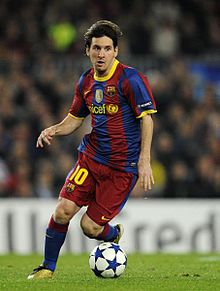
Pelé, in a recent interview, called Lionel Messi the best of the current generation, but saved the ultimate all-time-best plaudits for himself, referring to himself in the third person throughout (naturally). The royal we, we were amused.
Question: The musical accompaniment, does it drive you crazy or not? Discuss.
I recently checked myself into a piano trauma hospital. I’m not saying there’s a direct causal connection. Except I am.
CommentaryPreview
Barcelona-Milan: A Matchup of European Giants on Matchday 1
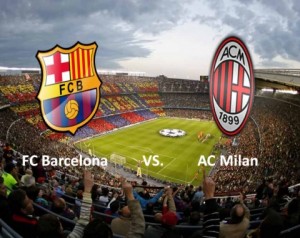 There aren’t many bigger clubs than Barcelona and AC Milan, so it’s quite a pleasant surprise to have them meeting on Matchday 1. Unless there are some serious surprises over the next couple months, they should finish 1-2 in their group–it’s hard to imagine either of slipping behind Zenit St. Petersburg or Cyprusians APOEL FC (see our run through today’s fixtures for a full account of what APOEL is an acronym for)–so their two matches should be crucial, determining who finishes atop the group and gets the better seed going into the knockout stage (which doesn’t start until five months from now, in Februrary).
There aren’t many bigger clubs than Barcelona and AC Milan, so it’s quite a pleasant surprise to have them meeting on Matchday 1. Unless there are some serious surprises over the next couple months, they should finish 1-2 in their group–it’s hard to imagine either of slipping behind Zenit St. Petersburg or Cyprusians APOEL FC (see our run through today’s fixtures for a full account of what APOEL is an acronym for)–so their two matches should be crucial, determining who finishes atop the group and gets the better seed going into the knockout stage (which doesn’t start until five months from now, in Februrary).
Frankly, though, it will be a quite a surprise if Milan finish with more points than Barcelona. The latter are, of course, as you’ve likely been hearing ad nauseum, one of the greatest club sides in the history of the game: two Champions League titles in the past three years, plus La Liga champions in each of those three years. All achieved with not only an incredible collection of talent–led of course by Lionel Messie–but with a tactical style that could very well be the next evolutionary step in the game.
(We’ll post more about that latter idea in the near future; for now, read Goal.com’s Peter Staunton‘s column titled “With the signing of Arsenal’s Cesc Fabregas, Barcelona could begin the next great tactical revolution” (“Pep Guardiola has become adept at using midfielders ‘out of position’ at centre-back. But what if that was the plan all along?”).)
On the other side, Milan have the history. They are seven-time winners of Champions League (1962–63, 1968–69, 1988–89, 1989–90, 1993–94, 2002–03, 2006–07), second only to Real Madrid (see the list); and eighteen-time winners of the Serie A title (tied with crosstown rivals Inter Milan, behind Juventus’s imposing total of 27; list).
(Indeed, these two sides met in the final of the 1994 Champions League–Milan was managed by Fabio Capello, who had succeeded the legendary Arrigo Sacchi at Milan, while Barcelona was managed by none other than Johan Cryuff. The latter were favored, but Milan destroyed them 4-0. See here for video highlights of that match.)
But although the current Milan side was top of the table in Serie from start to finish last season, they don’t feel particularly imposing. In the Champions League last spring, they were knocked out of the Round of 16 by Spurs, who were subsequently exposed by Real Madrid (and in the Premier League) as not an especially strong side themselves. They’ve got a big name multinational strikeforce–Pato, Inzaghi, Ibrahimovic, Cassano, Robinho–but they don’t come across as big game players (aside from perhaps the aging Inzaghi). Ibrahimovic is out for today’s match due to injury, so it will likely be Pato and Cassano partnering up front.
Behind them, are they still going to rely on Clarence Seedorf to give them some presence in the midfield? Probably not–against Lazio in Milan’s Serie A season opener against Lazio, they played Ghanaian Kevin-Prince Boateng in an attacking midfield role, ahead of Alberto Acquilani (recently returned to Italy on loan from Liverpool) and hard man Rino Gattuso.
It will be interesting to see if those three can manage to contain Barcelona’s midfield. Somehow we think it unlikely, given that no one else has managed to over the past few years. Xavi, Iniesta, new arrival Cesc Fabregas, Sergio Busquets pushing forward from his holding role, Lionel Messi dropping deep from his center forward position, Dani Alves and Adriano flying up the wings..there’s a lot there to deal with in the middle third of the pitch.

